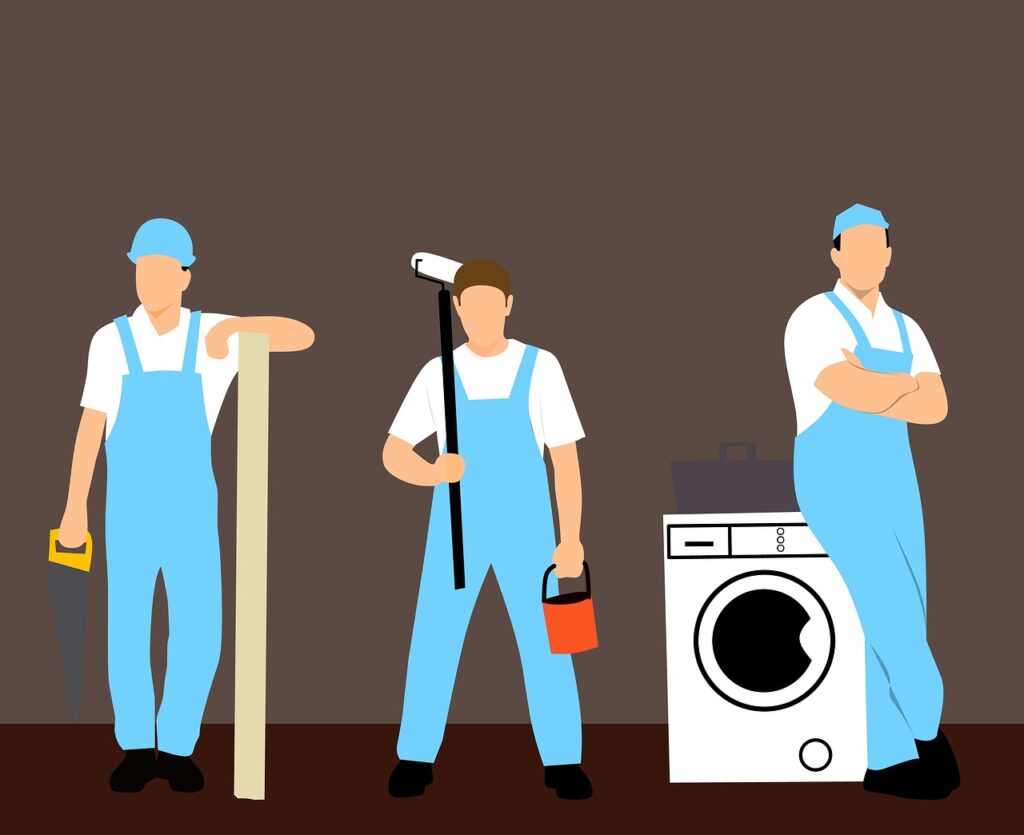Home improvements are tax deductible. This means that if you invest in your home, you can deduct the cost of the investment from your taxes.
The Internal Revenue Service defines a home improvement as any addition, reconstruction, or improvement to a taxpayer’s property. It also includes work done to improve the energy efficiency of the property and any repairs that are necessary to maintain the property in good working order.
There are two types of tax deductions for home improvements:
1. Deduction for expenses relating to depreciable assets (e.g., additions, reconstruction, or improvements)
2. Deduction for expenses relating to non-depreciable assets (e.g., repair costs).
What are the Benefits of Making Home Improvements?
Making home improvements is a great way to increase the value of your home. The IRS allows you to deduct the cost of these improvements from your taxes, which can help save you money in the long run.
Homeowners can also take out a line of credit on their homes’ equity. This means they can borrow against the value of their house, rather than paying interest on credit cards or other loans.
Homeowners should consider making home improvements that are both financially and aesthetically pleasing. A good rule of thumb is to spend no more than 1/3rd of your budget on any given project and keep in mind that this may require some creativity when it comes to finding a balance between beauty and practicality.

What Types of Home Improvement Projects Qualify as Tax Deductible?
The IRS has a list of qualified home improvement projects that can be deducted from your taxes. These include:
– Routine maintenance, such as fixing leaky pipes or painting the outside of your house every few years.
– Energy efficiency improvements, such as installing insulation or replacing windows.
– Major structural improvements, such as adding a room or building an addition to your house.
– Safety and security upgrades, such as installing a new security system or getting new locks for all the doors in your house.
How to Maximize Your Tax Deductions for Your Home Improvements
Home improvements can be a big expense. But they can also be a great opportunity to maximize your tax deductions.
The IRS has long recognized the value of home improvements for tax deductions, but the last few years have seen an increase in people trying to claim these deductions.
In this article, we will explore the different ways you can take advantage of tax deductions for your home improvements.
There are many ways you can take advantage of tax deductions for your home improvements. The most common way is by deducting the cost of labor and materials from your taxes as part of your general homeowner expenses. However, there are other ways that you can maximize these tax deductions that may not be so obvious at first glance. These include: – Deducting points on a mortgage or interest on loans is a good strategy to reduce the monthly payments and the total interest paid over time. This is a popular idea for homeowners and those who are refinancing their mortgages.
– A loan with a fixed interest rate can be repaid faster if the borrower makes extra payments.
– Making extra payments will reduce the length of the loan, which will save interest paid on the remaining principal.

What Items Can One Deduct on an IRS Schedule A?
Deductible expenses are items that can be deducted from your adjusted gross income. You can deduct these expenses on a federal income tax return if you meet certain requirements.
Some of the most common deductible expenses are:
– Medical and dental expenses (including prescriptions)
– Home mortgage interest
– Charitable contributions
– Taxable state and local income taxes
– Contributions to an IRA or other retirement plan
– Job search expenses related to looking for a new job in the same line of work (this includes travel, resume preparation, and employment agency fees)
Do You Need to Itemize Your Deductions to Take Advantage of the Tax Break?
Tax deductions are a way to reduce your taxable income and increase your tax refund. There are two types of deductions – itemized deductions and standard deductions.
When it comes to deductions—regardless of type—a tax calculator can be very useful. Itemized deductions are calculated by adding up the total amount of money spent on qualifying items and deducting them from your gross income. The following is a list of some common itemized deductions:
– mortgage interest
– property taxes
– state income taxes
– charitable contributions
– medical expenses (including health insurance)
– unreimbursed employee expenses (e.g., union dues)
– casualty losses (e.g., fire, theft)
The standard deduction can be claimed if you don’t want to itemize your deductions for the year, but it is only available for some taxpayers and it is less lucrative than itemizing your deductions.

Laws to Know about Filing Taxes on Your Home Improvement Costs in the U.S.A.
The U.S.A is one of the few countries that have a progressive tax system. Meaning, that the more you earn, the higher percentage of your income you will pay in taxes.
If you are a homeowner and want to save money on your taxes, then there are certain laws that you should be aware of before starting work on your home or property.
The first law is that homeowners must get a permit before beginning any construction or renovation project on their property if they want to avoid fines for not following the rules and regulations set forth by their local government.
The second law is that homeowners can deduct up to $1,000 in home improvement costs from their taxable income each year as long as they meet certain requirements such as having paid for at least half of the cost themselves and only spent a limited amount on the improvement.
Conclusion:
The tax deductions that you can take for your house are not just for the homeowner. If you lease out your home, then you can deduct the mortgage interest, property taxes, and other expenses.
The tax deductions that you can take for your house are not just for the homeowner. If you lease out your home, then you can deduct the mortgage interest, property taxes, and other expenses.
There are many ways to maximize your investment in a house. One of them is by taking advantage of all the tax deductions that come with owning a house. The most common deduction is mortgage interest and property taxes but there are others as well like insurance premiums, utilities, and maintenance costs.
If you’re considering buying a new house or renting one out to tenants, then it’s good to know all the legal steps to keep in mind, such as examining the property boundaries, verifying all existing easements and rights of way, and inspecting where utilities are located.

